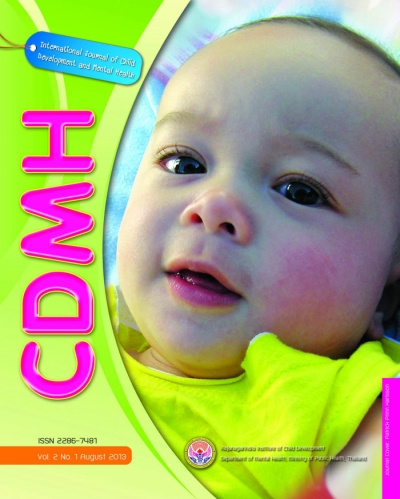ADHD Family Support Group: A Hospital-based Model in Taiwan
Main Article Content
Abstract
Attention deficient hyperactive disorder (ADHD) is one of the most common childhood
psychiatric disorders worldwide. In Taiwan, its prevalence is estimated at between 7.5% and
9.9%, however, according to analysis of the National Health Insurance dataset, as few as 20% seek medical help for the condition. This action research project consisted of forming a hospital-based ADHD family support group and evaluating how well it functioned. First, the formation of a hospital-based family support group in central Taiwan was announced by newspaper, following a news report on 21 August 2008 of a local teacher tying a hyperactive child to a chair. After attending lectures or receiving services at this hospital, some parents and teachers asked to participate in the ADHD support group. A family support group was
organized in 2011 and the research team helped appl y for publ i c educati on fundi ng from
pharmaceutical companies like Eli Lily and Janssen. In January 2013, to evaluate the group’s
functioning and the program results, we identified core leaders in the group and started interviewing them using an oral history approach. One child psychiatrist, eight family members, and two patients were selected for interviews. This family support group has demonstrated high motivation and efficiency in addressing its members’ concerns, as well as convincing therapeutic benefits. There is a need for pragmatic solutions that cannot be satisfied by purely scientific or therapeutic public discourse. For this reason, the family support group needed autonomy to respond to their own needs and to develop a new sense of identity.
Article Details
![]()
Creative Commons License
This work is licensed under a Creative Commons Attribution-NonCommercial-No Derivatives 4.0 International (CC BY-NC-ND 4.0)
The authors retain copyright and permit the journal the copyright of first publication
Articles, once having passed the review process and accepted for publication in the CDMH Journal, are copyrighted under the CDMH Journal, Department of Mental Health, Ministry of Public Health. Please be aware distribution of CDMH Journal content for commercial purposes without permission is expressly prohibited. However, distribution with intent to educate, advocate, or spread awareness within the general public and research communities is permitted and encouraged with the understanding that the CDMH Journal Editorial Board do not hold jurisdiction or liability for any accompanying comments, text, or information from third parties, either in favor for or against the original article’s assertions, conclusions, methodology, or content.


